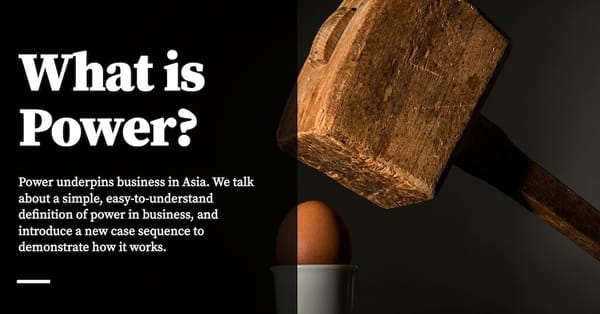Understanding how power works in business is necessary to understanding business in developing markets. A members-only mini series.
This is Part 1 in a short series on Power in Business.
We’re about to start on a series on Asian conglomerates here on Commoncog. If you’ve been following along, you should be familiar with the concept of Capital Allocation, which we first talked about in the Capital Expertise series with Building a Valuable Business? It’s How You Spend It That Matters. We’ve just concluded an entire sequence of cases on (mostly Western) businesspeople who are very good at capital allocation; this sets us up for comparisons to Asian conglomerators who do … different things.
Before we start with our series, however, we need to talk about one last concept, which is necessary to understand the Asian business context.
We need to talk about power.
A Simple Definition of Power
What is power? Here is my definition, one that we’re going to use for the rest of the Asian conglomerate series: power is controlling something people want. If you control something that someone else wants, you have power over that person. If that person controls something you want, they have power over you.
Originally published , last updated .
This article is part of the Operations topic cluster, which belongs to the Business Expertise Triad. Read more from this topic here→
This article is part of the Market topic cluster, which belongs to the Business Expertise Triad. Read more from this topic here→
This article is part of the Capital topic cluster, which belongs to the Business Expertise Triad. Read more from this topic here→





